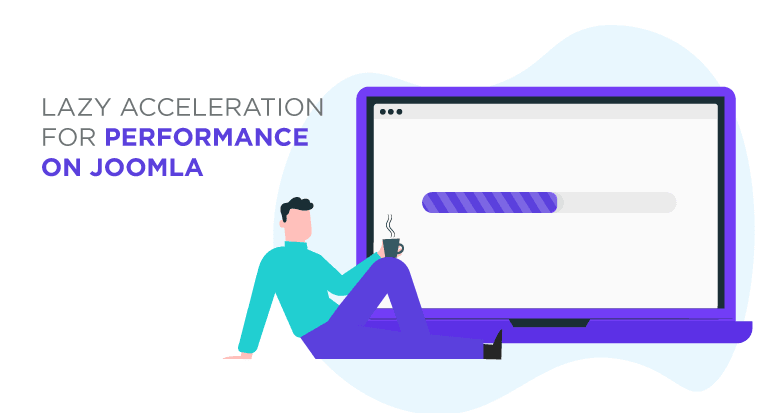Lazy Acceleration for Performance on Joomla
There is a lot you can do to improve your Joomla website’s speed, but have you ever stopped and asked yourself if your own content is encumbering loading times? Speed Cache is a Joomla extension that greatly enhances your website’s performance, but it has historically struggled with long posts. The latest update to Speed Cache does not only tackle this problem, but ports additional features from its WordPress alternative - WP Speed of Light.
Smarter File Handling
Files are at the core of your website, so it makes sense that they would also be the brunt of your blog’s speed woes. Caching is one popular technique to deal with files, instructing the internet browser to save them so that upon later visits, there is no need to download media again.
One of the latest updates to Speed Cache ensures the extension’s ability to work with caching. Central to caching is an Apache extension called mod_expires tasked with giving instructions to browsers on how to handle cache. Naturally, without this extension Speed Cache cannot instruct browsers to re-use files.
Since Speed Cache cannot activate the extension for you, the adopted alternative is that the Joomla extension will now let you know that it is disabled via a message on your dashboard. Another issue with webpages is that they are often fragmented in their composition.
One webpage, for example, may have more than one CSS stylesheet, and it is likely that there are multiple Javascript files in use. For each such file, the internet browser has to request it, wait and finally download it.
Imagine instead that they were all grouped together into one file - the browser would have to make only one request, drastically cutting down on the waiting time. However, combining all stylesheets manually into one file would make for a giant stylesheet with some styles only used in certain parts of your Joomla website. Luckily, Speed Cache has a solution.
One of the new options in Speed Cache’s minify tab in the configuration page is the ability to group files together in similar fashion to WP Speed of Light. This option is available not only for stylesheets, but also for scripts and fonts. Once enabled, when a request is made for a page, Speed Cache groups together its resources and delivers them in a single file.
It should be noted that whereas this option saves you a lot of time, it should also be used with caution and tested thoroughly on your Joomla website. If, for example, you have different functions with the same name in different scripts, grouping the two files could create conflicts. Finally, Speed Cache also lets you exclude certain files from being grouped.
Lazy Loading
As alluring as caching sounds, it is not a magical solution to all your website’s troubles. Consider the case where you have just published a new, long blog post sprinkled with images and other media files.
In most cases, those files are new to your Joomla visitors, which means that they will have to download all of the files in bulk. Whereas the blog post does not require further loading after this initial load, it is not uncommon for users to read only a part of the article. That translates to a lot of bandwidth wasted on content that they did not even get to see.
The concept of lazy loading is a solution that tackles this common problem. Instead of loading the whole article right away, lazy loading only downloads media when the reader reaches it. As a result, if the visitor only reads half the article, only the images and other content in the first half of the page is loaded. Now, thanks to Speed Cache, lazy loading is on Joomla too.
Lazy loading your Joomla content is a very simple process, with Speed Cache automatically taking care of everything. All you have to do is flick a switch in your Speed Cache extension’s configuration parameters, and lazy loading will apply on all of your Joomla pages and posts.
Sometimes, improving your website’s efficiency takes thinking outside the box. Speed Cache’s latest update does not only deliver better performance to your readers, but also the content that they want… Exactly when they want it.
You can also check this complete quick post that will show you how to improve further your Joomla site performance
When you subscribe to the blog, we will send you an e-mail when there are new updates on the site so you wouldn't miss them.





Comments